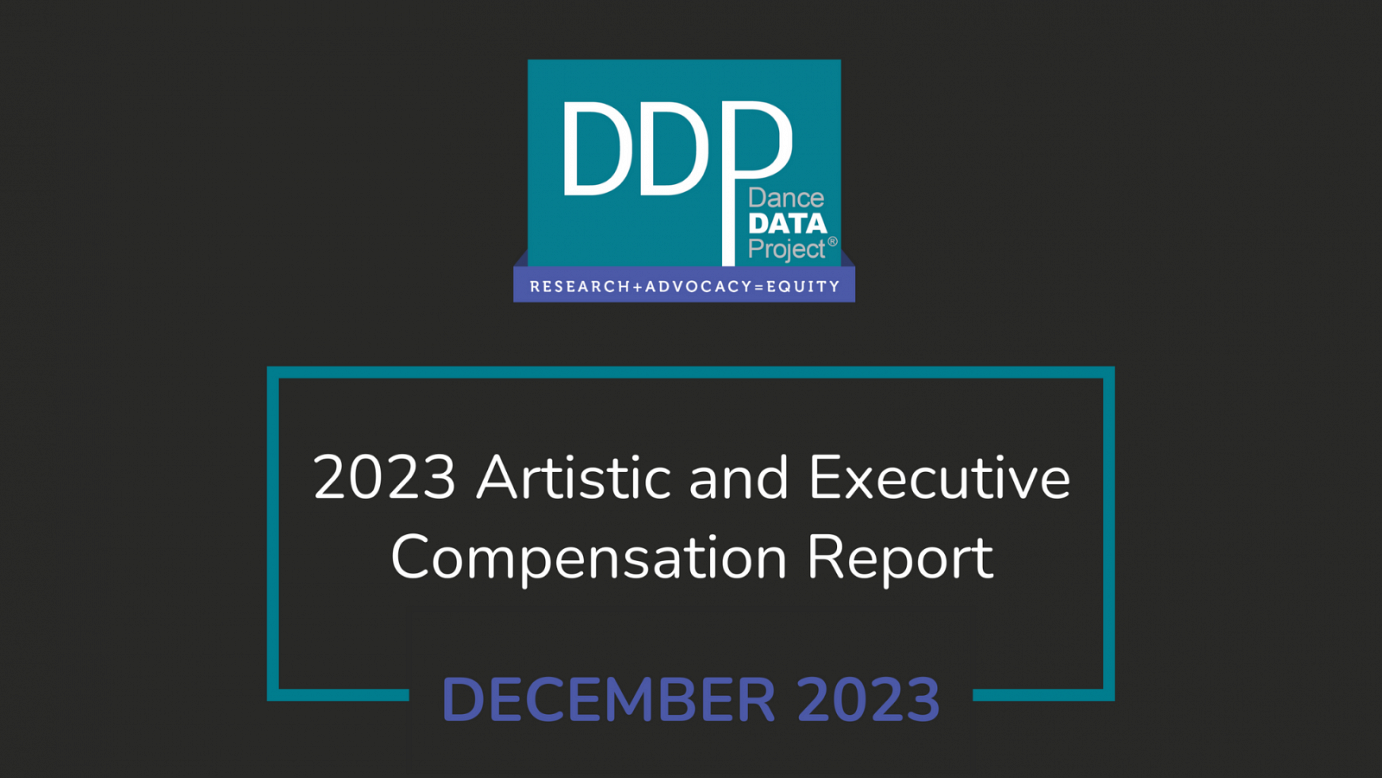Dance Worker Digest | January 2024
Thursday, January 25, 2024
Dance Worker Digest | January 2024

Dance Worker Digest
January 2024
This month's topics cover a toolkit for disrupting harm in dance, increases to visa petitions fees, DDP’s latest report on leadership compensation, and Americans for the Arts’ study on the economic and social impact of arts and culture.
Whistle’s Free Curriculum on ‘Disrupting Harm in Dance’ Now Available
 Whistle, an international platform that aims to confront gender-based violence in dance, has released Disrupting Harm in Dance, “an online self-directed course offering information and tools for dancers, performers, and adjacent professionals to work more safely together.” Created by dancers, it serves as a starting point for individuals and communities to instigate change—drawing from real-life experiences, professional research, expert opinions, and trial-and-error applications. The curriculum includes content by Crip Movement Lab, The Dance Union, J. Bouey, OFEN Co-Arts Platform and Whistle.
Whistle, an international platform that aims to confront gender-based violence in dance, has released Disrupting Harm in Dance, “an online self-directed course offering information and tools for dancers, performers, and adjacent professionals to work more safely together.” Created by dancers, it serves as a starting point for individuals and communities to instigate change—drawing from real-life experiences, professional research, expert opinions, and trial-and-error applications. The curriculum includes content by Crip Movement Lab, The Dance Union, J. Bouey, OFEN Co-Arts Platform and Whistle.
• Explore the ‘Disrupting Harm in Dance’ curriculum
• Learn more about Whistle
Photo credit: Whistle workshop at Taz im August. Photo by Dajana Lothert
Visa petitions processing fee to increase on February 26, 2024
 The U.S. Citizenship and Immigration Services (USCIS) released a notice of its final rule on December 27, 2023 to increase the filing fee for Form I-907, Request for Premium Processing, to adjust for inflation. The filing fee increases from $2500 to $2805 (a $305 increase), effective February 26, 2024.
The U.S. Citizenship and Immigration Services (USCIS) released a notice of its final rule on December 27, 2023 to increase the filing fee for Form I-907, Request for Premium Processing, to adjust for inflation. The filing fee increases from $2500 to $2805 (a $305 increase), effective February 26, 2024.
Regular processing of Form I-129 petitions can take up to anywhere from 15-45 calendar days. The processing time for the premium processing service is usually up to 15 calendar days. If USCIS receives the Form I-907 postmarked on or after February 26, 2024 with the incorrect fee, the filing will be rejected, and the incorrect fee will be returned to the petitioner.
Many dance organizations across the sector utilize the premium processing service to expedite processing of Form I-129 petitions for O and P guest artists and other creative workers. The increased visa fees may hinder opportunities for immigrant artists, potentially limiting presenting organizations’ ability to book international talent, thus impacting the diversity of dance presentation in the US.
• Review the notice from USCIS
• Review the final rule via the U.S. Government Federal Register
Dance Data Project® Releases 2023 Artistic and Executive Compensation Report
 Dance Data Project® (DDP) has published its fifth annual study on leadership compensation in the largest 150 ballet and classically based companies in the U.S. The report, covering fiscal years 2021 and 2022, includes an expanded scope of leadership positions including artistic and executive directors, school directors, and associate/assistant artistic directors. Key findings include:
Dance Data Project® (DDP) has published its fifth annual study on leadership compensation in the largest 150 ballet and classically based companies in the U.S. The report, covering fiscal years 2021 and 2022, includes an expanded scope of leadership positions including artistic and executive directors, school directors, and associate/assistant artistic directors. Key findings include:
• In FY22, female artistic directors earned 17 cents less per dollar than their male counterparts.
• Female executive directors within the largest 50 companies were paid on average 3 cents less per dollar made by their male counterparts.
• Within the largest 150 companies, 23 artistic directors’ compensation and 26 executive directors’ compensation increased from F20 to FY21, despite company budgets decreasing.
The report provides vital salary benchmarking information, revealing compensation figures for the largest 50, next 50, and additional 50 companies, and highlighting the importance of pay transparency for the dance industry's future. DDP plans to expand its compensation reporting and encourages companies to participate in future data verification requests.
• Review the report
• Check out the press release announcing the report
Americans for the Arts ‘Arts & Economic Prosperity 6’ Showcases the Economic and Social Impact of Arts & Culture
 Last October, Americans for the Arts released ‘Arts & Economic Prosperity 6 (AEP6)’, an economic and social impact study of the nation’s nonprofit arts and culture industry. The 2022 data covered 373 study regions across all 50 states and Puerto Rico. Key findings include:
Last October, Americans for the Arts released ‘Arts & Economic Prosperity 6 (AEP6)’, an economic and social impact study of the nation’s nonprofit arts and culture industry. The 2022 data covered 373 study regions across all 50 states and Puerto Rico. Key findings include:
• Nonprofit arts and culture organizations and their audiences generated $151.7 billion in economic activity.
• This economic activity supports 2.6 million jobs, generating $29.1 billion in tax revenue, and providing $101 billion in personal income to residents.
AEP6 demonstrates that when communities invest in arts and culture, “they are investing in an industry that stimulates the economy, supports local jobs, and contributes to building healthy, vibrant, and livable communities.”
• Review the study’s findings
• Explore tools and resources from AEP6





